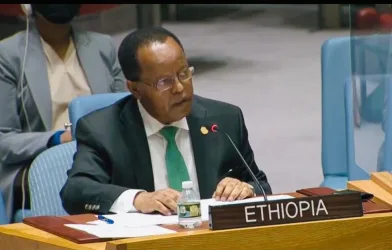![]()
Kenya says its forces will pursue militants into Somalia, following a spate of attacks in which four Europeans have been kidnapped and one killed since September.
Following the kidnappings of two Spanish aid workers on Thursday and the abductions of British and French women in recent weeks, minister of internal security George Saitoti said Kenyan forces would pursue al-Shabab militants into Somalia.
“For the first time our country is threatened with the most serious level of terrorism,” Mr Saitoti said.
The plan to pursue fighters inside Somalia signals a huge change in Kenya’s approach to the security threat posed by the lawless state. While the African countries Uganda and Burundi each have thousands of troops fighting al-Shabab militants in Mogadishu, Kenya has not actively engaged in the fight.
Al-Shabab has already carried out one devastating suicide attack in Uganda – killing 76 people last year – and Kenya’s decision to increase military engagement against the militants could open it up to more attacks inside its borders.
On Thursday gunmen entered the world’s largest refugee camp, Dadaab, and seized two Spanish women working for the aid group Doctors Without Borders. Dadaab is filled with nearly half a million Somali refugees fleeing conflict and hunger. Tens of thousands of Somalis have swelled the camp’s ranks in the last three months after fleeing famine.
On Saturday, Mr Saitoti said that because of the kidnappings, the border with Somalia would now be closed.
“We have now closed the border and we have no apologies as far as that is concerned,” he said. “You will recall yourself that when a very large number of refugees were coming from Somalia because of the drought there we did agree to receive them in fulfilment of our international obligation. We did of course warn the international community that while Kenya was willing to take these people there were inherent risks.”
One such risk is that Kenyan officials have almost no way of telling apart legitimate refugees and al-Shabab militants posing as hungry Somalis.
A spokesman for the United Nations refugee agency noted on Saturday that the border had officially been closed for three years, so it was not immediately clear if Mr Saitoti’s announcement signalled a new policy or a reiteration of the old one.
Kenya takes terror fight to Somalia
Published: October 16, 2011







